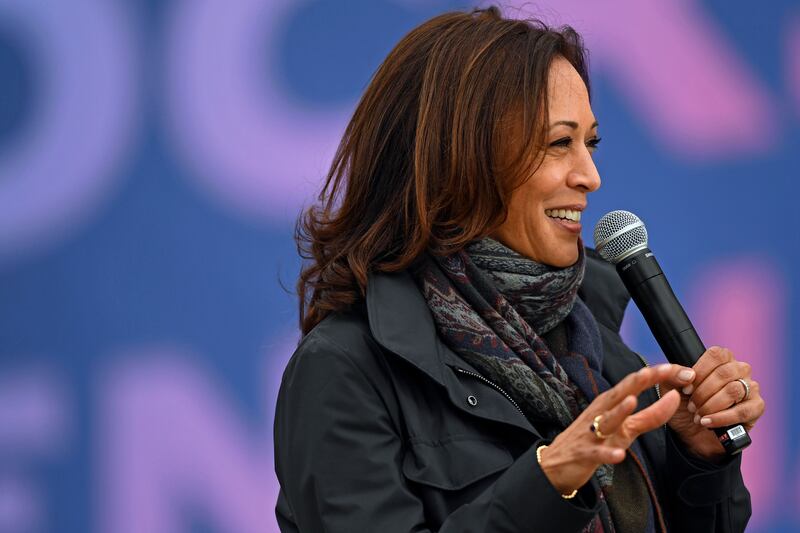Four years ago, I wrote an op-ed about the historic nature of the 2016 election. With a woman at the head of the Democratic ticket and others playing vital roles in campaigns on both sides of the aisle, it should have been a celebratory year. Instead, we saw sexist attacks and a lack of focus on these candidates’ qualifications.
A lot has happened in the intervening years, with the #MeToo movement and a record number of women elected in 2018 at every level of government. Despite that and the fact that we are now in the final weeks of another historic year, the gendered analysis and sexist commentary still pervades our political system.
Earlier this month, the University of Utah hosted the vice presidential debate. On the stage of Kingsbury Hall, Sen. Kamala Harris made history as the first Black woman and Asian American on a major party ticket. This week, Amy Coney Barrett was confirmed to the Supreme Court, making her the second woman to be nominated by a Republican president and the first mother of school-aged children to become a justice. And in Utah, Diedre Henderson and Karina Brown are running to become Utah’s next lieutenant governor, the first time two women have faced each other for this role. We are also seeing other candidates across the country making history in races from mayor to governor to U.S. senator.
I would love to focus on the positives and cheer every glass ceiling that is broken. Yet the commentary about these candidates makes it impossible. There have been far too many comments using both covert and blatantly sexist language. From criticizing candidates for their looks, the size of their families, to using the coded language used to call female candidates angry, harsh or unlikeable.
This is far from anecdotal. Analysis shows female candidates are far more likely to be at the receiving end of these types of comments and less likely to be judged for their actual qualifications. Women are also more likely to receive threats of violence on the campaign trail or while in elected office. We saw an extreme example of this with the arrest of 13 men who were plotting to kidnap Michigan Gov. Gretchen Whitmer. All of this is raised to an even more disturbing degree for women of color who have to battle the double-edged sword of sexism and racism.
While I used to think these comments and attacks were echoes of a more sexist or biased history, it has become too obvious not to recognize that they are still a pernicious part of our present. And sadly, taking part in this sexism seems to be a nonpartisan issue, with women on both sides of the aisle feeling the brunt of it.
Let’s focus on the candidates’ words, their records and their plans and leave the sexism where it belongs: in the past.
It should go without saying that supporting a female candidate doesn’t necessarily mean you are progressive. Likewise, not supporting that same candidate doesn’t necessarily mean you are sexist. We must evaluate these candidates by the only measures that make sense: their qualifications, records and policies.
The recent debate between Harris and Mike Pence received the second highest ratings of any vice presidential debate, just behind the 2008 debate between Joe Biden and Sarah Palin, and ahead of the 1984 debate between George H.W. Bush and Geraldine Ferraro. Clearly people want to tune in and hear from these women. They want to understand what these candidates stand for and see what type of leaders they would become.
It is my hope that in another four years, I won’t feel compelled to put pen to paper about my frustrations with the sexism that still infiltrates American politics. Let’s focus on the candidates’ words, their records and their plans and leave the sexism where it belongs: in the past.
Morgan Lyon Cotti has worked in policy and politics in Utah for 20 years. She holds a PhD in Political Science from the George Washington University.

